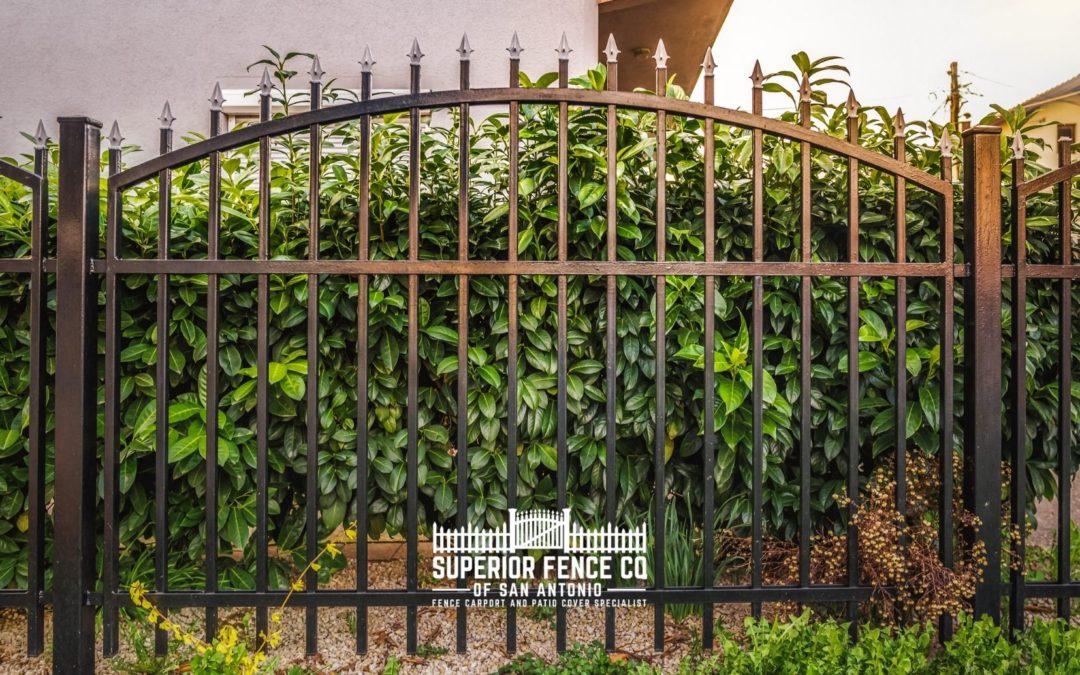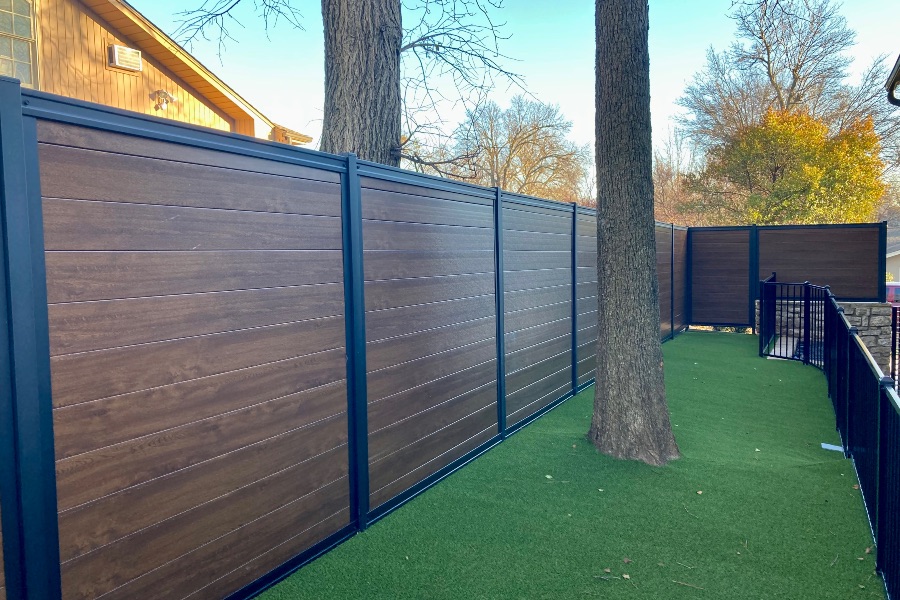All Categories
Featured
When you make a decision to set up a fence around your residential building, it's necessary to recognize the authorization requirements specific to your location. While mounting a fence can appear like a simple home enhancement project, local laws and policies need to be followed to guarantee the installation is lawful and compliant. Falling short to safeguard the appropriate authorizations can lead to penalties or perhaps require you to remove the fencing. Here's an extensive take a look at the authorizations you might need for fencing setup.
Why Do You Need a License for Fence Installment? A fence is even more than simply an obstacle between residential or commercial properties-- it can influence safety, residential or commercial property value, visual appeals, and also ecological problems. Regional governments need licenses to make sure that fences fulfill specific requirements and do not cause troubles for utilities, next-door neighbors, or the neighborhood as a whole. Authorizations additionally ensure that the setup abides by zoning legislations, developing codes, and safety and security laws.
![]()
Types of Authorizations You May Require. Building Permit. A building license is one of one of the most typical licenses needed for fencing installation. This license guarantees that the fencing fulfills regional building codes. If you're developing a fence over a certain elevation (commonly over 6 feet), you'll likely require a structure license. The local building department will generally examine the site and testimonial plans to ensure the framework is secure and does not obstruct public rooms or develop threats.
Zoning License. A zoning license guarantees your fence abides with location, obstacle, and elevation guidelines. Fences might need to be established back a certain distance from pathways, roadways, or home lines to protect against blockage or disturbance with utilities.
HOA Authorization. If your property becomes part of a home owners organization (HOA), you may require to look for approval prior to installing a fencing. HOAs typically have guidelines that control the aesthetics and structure of fencings to guarantee they are in consistency with the community. You might require to send your plans for authorization, and the HOA may restrict fencing height, style, or material.
Specialty Permits. In some locations, there may be added permits needed for certain situations. If your fencing is near a safeguarded ecological area or situated in a flooding zone, you might require to obtain specialty permits related to environmental impact. In a similar way, if the fence remains in an area with underground utilities, you may need to obtain clearance to prevent harmful pipes or wires.
![]()
Easement or Utility Business Authorization. Prior to setting up a fence, it's crucial to examine whether the residential or commercial property consists of an easement, such as an utility easement, which can impact where you can place your fence. Easements are locations of land assigned for public or personal utilities, and you might require approval from the utility business or other authority to develop within this area.
Exactly How to Figure Out What Permits You Required. To make sure that you're complying with all the essential policies, here's exactly how you can determine the particular licenses required for your fence installment:
![]()
Go To Your Regional Federal Government Office: The very first step is to consult your regional building or zoning division. Lots of cities and areas have standards available online that define what kinds of authorizations are needed for fence installment. If not, calling or seeing the workplace face to face can assist clear up the process. Examine Your City's Internet site: Lots of towns offer details concerning fence setups and the licenses required with their main sites. Some websites even allow you to send applications on the internet. Consult a Fence Setup Professional: If you're not exactly sure about local laws, an expert fence contractor can help. They are familiar with the allowing process and can assist you via the steps. The Consequences of Not Obtaining a License. Failing to secure the required licenses prior to setting up a fence can result in significant repercussions. You might be fined or called for to remove the fencing completely. Additionally, if you decide to offer your home in the future, the absence of an authorization might prevent possible purchasers, as they may see it as an indication that the residential or commercial property is not certified with local legislations. Making sure that you have the proper licenses will conserve you time, cash, and frustrations over time.
Verdict. Mounting a fence around your home can include both safety and visual allure, but it is essential to guarantee you're complying with the lawful steps in the process. Researching the particular authorization needs for your location, consisting of building authorizations, zoning guidelines, HOA approval, and utility permissions, will aid ensure your fencing installment goes efficiently. Putting in the time to comprehend these demands now can save you from expensive errors and prospective legal concerns down the line.
Why Do You Need a License for Fence Installment? A fence is even more than simply an obstacle between residential or commercial properties-- it can influence safety, residential or commercial property value, visual appeals, and also ecological problems. Regional governments need licenses to make sure that fences fulfill specific requirements and do not cause troubles for utilities, next-door neighbors, or the neighborhood as a whole. Authorizations additionally ensure that the setup abides by zoning legislations, developing codes, and safety and security laws.

Types of Authorizations You May Require. Building Permit. A building license is one of one of the most typical licenses needed for fencing installation. This license guarantees that the fencing fulfills regional building codes. If you're developing a fence over a certain elevation (commonly over 6 feet), you'll likely require a structure license. The local building department will generally examine the site and testimonial plans to ensure the framework is secure and does not obstruct public rooms or develop threats.
Zoning License. A zoning license guarantees your fence abides with location, obstacle, and elevation guidelines. Fences might need to be established back a certain distance from pathways, roadways, or home lines to protect against blockage or disturbance with utilities.
HOA Authorization. If your property becomes part of a home owners organization (HOA), you may require to look for approval prior to installing a fencing. HOAs typically have guidelines that control the aesthetics and structure of fencings to guarantee they are in consistency with the community. You might require to send your plans for authorization, and the HOA may restrict fencing height, style, or material.
Specialty Permits. In some locations, there may be added permits needed for certain situations. If your fencing is near a safeguarded ecological area or situated in a flooding zone, you might require to obtain specialty permits related to environmental impact. In a similar way, if the fence remains in an area with underground utilities, you may need to obtain clearance to prevent harmful pipes or wires.

Easement or Utility Business Authorization. Prior to setting up a fence, it's crucial to examine whether the residential or commercial property consists of an easement, such as an utility easement, which can impact where you can place your fence. Easements are locations of land assigned for public or personal utilities, and you might require approval from the utility business or other authority to develop within this area.
Exactly How to Figure Out What Permits You Required. To make sure that you're complying with all the essential policies, here's exactly how you can determine the particular licenses required for your fence installment:

Go To Your Regional Federal Government Office: The very first step is to consult your regional building or zoning division. Lots of cities and areas have standards available online that define what kinds of authorizations are needed for fence installment. If not, calling or seeing the workplace face to face can assist clear up the process. Examine Your City's Internet site: Lots of towns offer details concerning fence setups and the licenses required with their main sites. Some websites even allow you to send applications on the internet. Consult a Fence Setup Professional: If you're not exactly sure about local laws, an expert fence contractor can help. They are familiar with the allowing process and can assist you via the steps. The Consequences of Not Obtaining a License. Failing to secure the required licenses prior to setting up a fence can result in significant repercussions. You might be fined or called for to remove the fencing completely. Additionally, if you decide to offer your home in the future, the absence of an authorization might prevent possible purchasers, as they may see it as an indication that the residential or commercial property is not certified with local legislations. Making sure that you have the proper licenses will conserve you time, cash, and frustrations over time.
Verdict. Mounting a fence around your home can include both safety and visual allure, but it is essential to guarantee you're complying with the lawful steps in the process. Researching the particular authorization needs for your location, consisting of building authorizations, zoning guidelines, HOA approval, and utility permissions, will aid ensure your fencing installment goes efficiently. Putting in the time to comprehend these demands now can save you from expensive errors and prospective legal concerns down the line.
Latest Posts
Find Affordable Auto Repairs with Montclare’s Exclusive Service Specials
Published May 26, 25
1 min read
Discover the Perks of Vinyl Fencing with Montana Fencing
Published May 21, 25
1 min read
Specialist Industrial Roof Solutions in North Platte, Nebraska
Published May 20, 25
2 min read